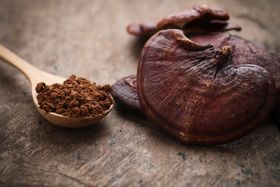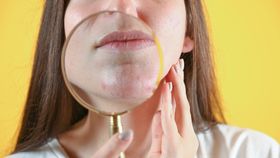Anti-inflammatory Diet: The Key to Menopause Joint Pain Relief
The fall in estrogen during menopause increases the risk of joint inflammation. Here's how an anti-inflammatory diet helps relieve menopausal joint pain.
Updated March 23, 2023.
Some women sail through menopause without many discomforts while others struggle with numerous symptoms such as night sweats, hot flashes, poor sleep, dry skin, weight gain, and mood changes (1).
This is a natural part of a woman's life cycle, but that doesn't mean you have to bear with the symptoms unnecessarily. Some lifestyle changes, especially in your diet, can make a significant difference in mitigating menopause side effects. Specifically, the anti-inflammatory diet.
» Read more: Menopause Joint Pain Natural Remedies
Relationship Between Diet & Menopause-Related Joint Pain
As we move into our 40s and 50s, joint pains will occur naturally. This generally starts with the breaking down of joint cartilage due to wear and tear, which then triggers inflammation and further progresses the symptoms.
Oestrogen is a female hormone with many roles, including reducing inflammation and protecting the joints. With the fall in oestrogen during menopause, your joints are at more risk of inflammation. Oestrogen deficiency is associated with the development of osteoporosis (2).
Inflammatory foods such as processed foods, high-sugar foods, and a highly acidic diet can aggravate the inflammation in the affected joints.
Best Anti-Inflammatory Foods to Reduce Menopause Joint Pain
In an anti-inflammatory diet, the key is to consume a variety of nutrients from a diverse array of food groups. Here is a broad list of the best anti-inflammatory foods to reduce menopausal joint pain:
- Leafy green vegetables These are low in calories, but high in minerals, vitamins, and fiber.
- Fresh fruits Fruits are rich in vitamins, minerals, and antioxidants—especially berries.
- Dairy products Milk, cheese, yogurt, etc are rich in calcium and protein.
- Lean proteins & Fatty fish These are rich in protein, and fatty fish contains omega-3 fats that combat inflammation and help with the lubrication of joints (3).
- Healthy oils Olive oil, butter, and coconut oil have anti-fungal and antibacterial properties.
- Whole grains These are rich sources of fiber, magnesium, and B-vitamins
- Legumes, nuts & seeds These are nutrient-dense foods with protein, fiber, vitamins, and minerals.
- Herbs & spices Tumeric, ginger, garlic, cinnamon, pepper, ginseng, curry leaves, etc. are all well-known for their anti-inflammatory benefits (4).
Bottom Line
The anti-inflammatory effects of hormones such as oestrogen are diminished during menopause, and following the correct diet that includes plenty of anti-inflammatory foods helps replenish this. Additionally, there are many other at-home remedies you can try to combat joint pain caused by menopause.







